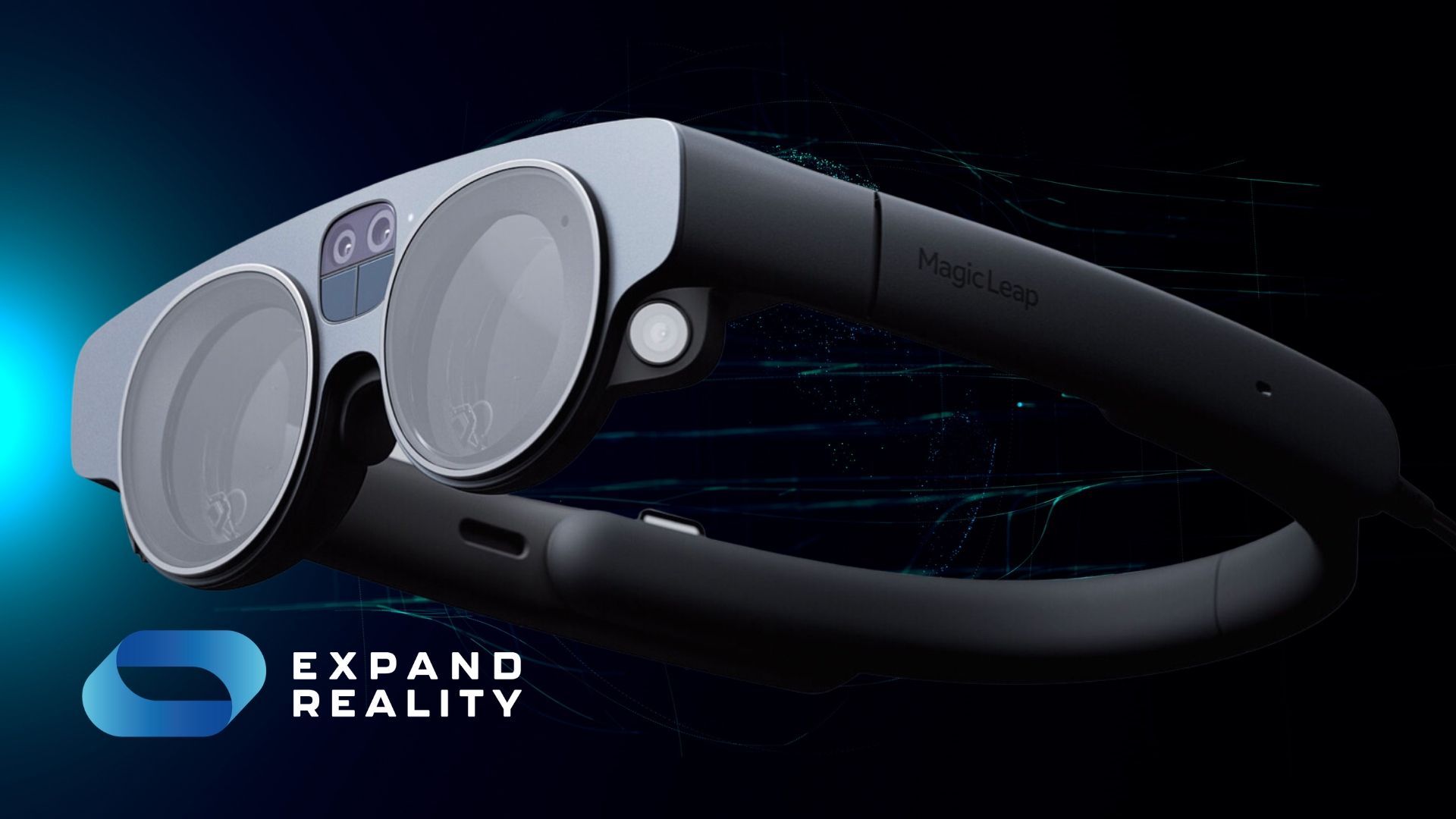hello@simplyvideo.io
What do we know about Google and Samsung's XR headsets?
A new Android-powered XR device announced for 2023 is the result of the latest partnership between Samsung and Google. Here's what we know so far.

With Samsung's headline-grabbing XR device set for release sometime this year, 2023 is set to be a game-changing year for extended reality. Take a look at everything we know so far – and check out some of our predictions for the not-so-distant future.
The big reveal
Wrapping up its February 2023 Galaxy Unpacked event, Samsung revealed some pretty exciting news that has stirred up a real buzz in the XR sector.
After showcasing the firm's latest Galaxy S23 range of smartphones – as well as the new Galaxy laptops – Samsung's head of mobile division, TM Roh, invited executives from Qualcomm and Google onto the stage to reveal their joint venture – a new XR device.
What to expect
The trio decided to keep everyone guessing about exactly what kind of device it was developing. While the term "XR" was used in the presentation, this is a blanket term that covers all forms of digitally altered reality. That includes assisted reality (aR), augmented reality (AR), mixed reality (MR) and virtual reality (VR).
But if Samsung is planning on following Apple's lead (with the expected release of its
new device this spring), we can expect to see some sort of MR headset from the South Korean tech giant in the near future.
When?
Samsung was not forthcoming with an exact release date. However, speaking to
The Washington Post, Roh said, "We're getting there, […] we're not too far away".
We may not know exactly when to expect this new piece of equipment, but a partnership of such notable companies all working on a single device promises to create an exciting addition to the XR world.
Who will be involved?
When asked about the partnerships, Roh said, "For the chipset, it is going to be a strategic collaboration with Qualcomm. The hardware will be us.
"For the ecosystem, we were trying to determine which platform to work with", he added, "and in the end, we decided that it was going to be Google".
It won't be the first time Google or Qualcomm has worked with Samsung. And, from what we know so far, it seems to be a well-thought-out trinity.
Qualcomm is a world-leading expert when it comes to creating powerful processors, which are regularly favoured by many smartphone manufacturers. The company designs the technologies that power the lion's share of XR hardware, so it should be well-equipped for the job.
As for the software, the Washington Post article referred to an "unannounced version of the Android operating system meant specifically to power devices such as wearable displays".
Apparently, Google has been busy developing some new software exclusively designed for XR devices. Google spokesperson Kaori Miyaki said, "We're excited to work with our partners to build a new generation of immersive computing experiences that will further elevate what users can do with Google".
Google has its own history of XR software development. In February, it announced the launch of Immersive Stream for XR to power photo-realistic immersive experiences from the cloud.
Samsung's past endeavours in XR
This won't be the first time Samsung has ventured into the world of XR. It was actually one of the first major companies to explore and develop virtual reality hardware – without, however, much enduring success.
2015 saw the release of Gear VR headsets, which relied on your smartphone to act as the display. The device was a success initially, with good sales in the first year. However, dwindling interest meant the headset was discontinued in 2020.
Samsung also launched the MR Odyssey headset for Windows PCs in 2017, which received great reviews but also failed to fly off the shelves.
Why didn't Samsung see success in the past?
Reading between the lines, Roh may believe a weak ecosystem is to blame. "We believe that the ecosystem has to be somewhat ready for the product to be launched and for the product to be successful as well," he said.
"And as you know, there have been many attempts by other companies so far, but not as successful as had been hoped because perhaps the ecosystem was not as ready as it should have been."
All about the ecosystem
Ultimately, without a sturdy and well-developed ecosystem in place, there just isn't the right market to support new products.
However, the world of extended reality has developed dramatically since its early days. XR has now grown a substantial customer base and has been adopted by an extensive array of businesses and industries.
Might now be the perfect time for Samsung to return to the XR scene? Whatever the answer, Samsung isn't leaving anything to chance. It's reported that the tech giant will also be joining forces with Microsoft and Meta to build a range of services tailored to its new XR device, manually building an ecosystem for the equipment well before its release.
The wait is on
The hardware's impending arrival is exciting news for the XR world, as it's likely the first time a single device has seen the collaboration of so many major tech companies. But with no confirmed launch date, all we can do now is wait to see just what Samsung and Google can produce.
Want more XR?
Extended reality is being used by more industries than ever, opening up a whole new world of potential for communication, training, customer experience and more. At Expand Reality we specialise in bringing this technology to your business. If you're interested in exploring some other devices from leading manufacturers, you can browse and
buy XR in our online store.
Want more industry news and analysis? Bookmark our
XR blog and keep on top of the latest updates.

Contact Us
Connect global teams. Collaborate with remote experts. Streamline processes and unlock cost savings with industry-ready extended reality technology.
Contact Info
hello@expandreality.io
Gemini Business Park
Sheepscar Way
Leeds
LS7 3JB
All Rights Reserved | Expand Reality







